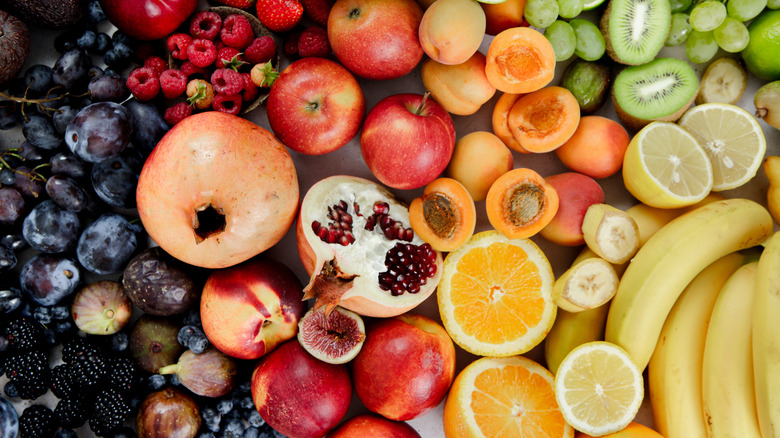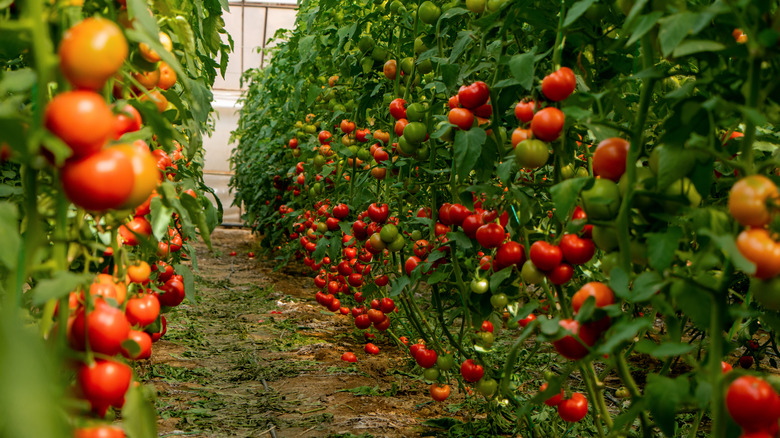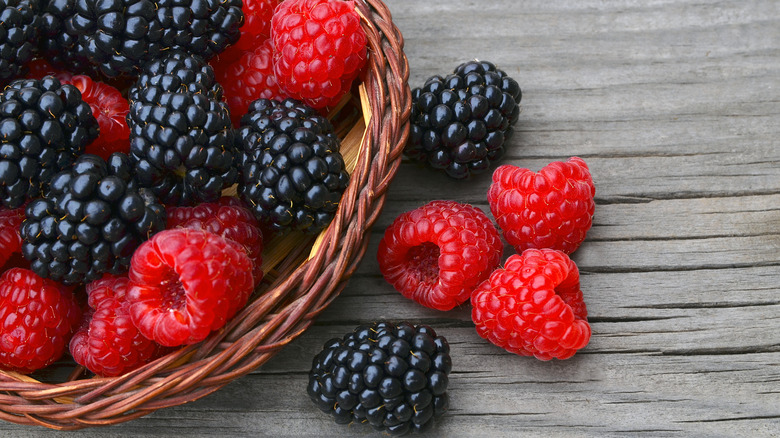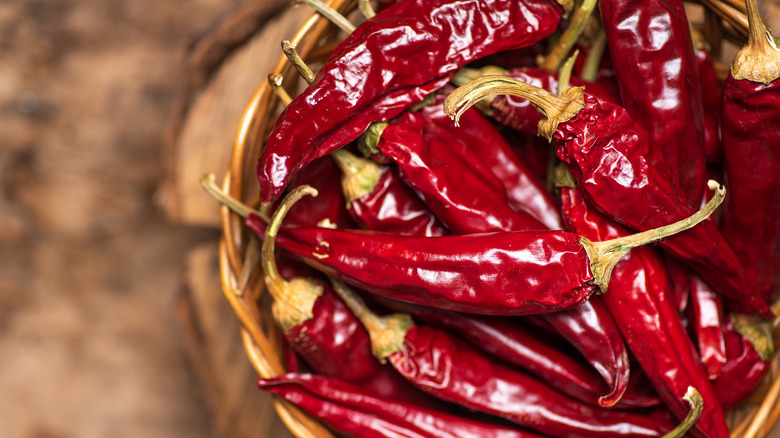Why Strawberries Aren't Berries, But Bananas & Other Fruits Are
Language is weird and malleable, especially when it comes to what we call fruit. There are some kinds of foods that the average home cook can identify immediately: strawberries are berries, for instance, and bananas are fruit. This kind of kindergarten exercise seems to belong more to common sense than linguistics, but as a matter of fact, there can be quite a bit of variance between common language and botanical language. In the examples listed above, strawberries are not, in fact, berries to the botanist — but bananas are. So are cucumbers and avocados, to get downright weird about it.
In our common culinary language, we make certain distinctions between what constitutes a berry and what we call fruit. But our criteria for these definitions differ from the botanical ones, in which the classification of a fruit or vegetable depends on which part of the plant it grows from. Berries, in this case, are seed-bearing, fleshy fruits which are derived from the ovary of a single flower — so, bananas and cucumbers would make the cut. Strawberries come from another part of the plant. And don't get us started on the difference between fruits and vegetables. Okay, let's actually start there.
Tomatoes in the Supreme Court
So, there's a difference between common language and botanical terms — but that's not all. Obviously, it was only a matter of time before lawyers got involved. In the 1893 case Nix v. Hedden, the Supreme Court adjudicated the status of a tomato for tax purposes and decided it was a vegetable. Now, this might satisfy our own colloquial definition, but botanically, tomatoes are considered berries. SCOTUS rejected this tomato-as-fruit idea, comparing it to attempts to call beans seeds. Don't get in the way of interstate commerce with fancy botanist talk!
So for now, forget the idea that fruit is sweet and vegetables are savory. From a scientific perspective, vegetables are foods that come from the leaf, stem, or root of a plant. Okay, so carrots and potatoes are vegetables; got it. But by this definition, rhubarb is a also vegetable, but corn is a fruit because it contains seeds. Hey, we don't make the rules. Now, let's get back to the difference between fruit and berries.
Berries that are not actually berries
Fruits contain seeds and come from either one or more of a plant's flowers. If the food develops from a flower with more than one ovary, it's considered a fruit and not a berry. Because we started calling small, generally round, and sweet or tart things "berries" long before botanists got around to making morphological distinctions, it led to some confusion, like bananas technically being berries. Conversely, there are quite a few non-berry berries, at least according to botanists.
So, what is not technically a berry, besides strawberries (which you should be eating more of)? Well, brace yourself: raspberries aren't, and neither are blackberries or mulberries. All of these fruits develop from more than one flower or ovary — in fact, raspberries and blackberries are the result of many ovaries coming together to form one flower, so they're called "aggregate fruits." As it turns out, strawberries are known as "accessory fruits" because they come from plant tissue that's not the floral ovary, putting them in the same botanical basket as apples.
Which fruit qualifies as a berry?
How the fruit is physically structured leads to further classification: defined by its outer skin, or exocarp; the flesh in the middle, or mesocarp; and the structure surrounding its seeds, or endocarp. To be botanically considered a berry, the fruit must develop from a single ovary and have a soft exocarp and endocarp as well as a fleshy mesocarp. (There are exceptions, of course. You're probably not inclined to take a big bite out of a whole avocado.) This would make blueberries and cranberries, you know, actual berries.
This botanical definition allows for a lot more foods to qualify as berries — and not only the aforementioned bananas, cucumbers, tomatoes, and avocados. Grapes are berries, which might not be too much of a stretch — but then again, so are kiwis, peppers, eggplants, watermelons, and pumpkins. Oh, and it's always a great idea to add more berries to your diet, like eating a banana every day.



